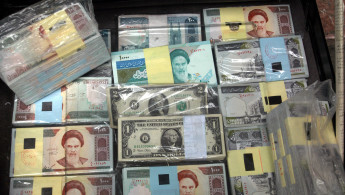Iran banks hail $270m compensation win over Bahrain
Two leading Iranian banks have welcomed a decision by a Hague-based tribunal to order Bahrain to pay them more than $270 million in compensation for its 2015 closure of a bank they had supported.
The November 9 ruling from the Permanent Court of Arbitration found that reporting failures that Bahrain alleged showed Future Bank was a front for sanctions-busting were insufficient grounds for effectively expropriating the Iranian banks' money.
It found that Bahrain's motives had been primarily political, reflecting Gulf Arab anger at the nuclear agreement world powers had struck with Iran a few weeks earlier.
The private award was not published by the tribunal but has been disclosed by the Iranian banks which sought its arbitration.
Reacting to the award's disclosure, Bahrain charged that it contained "serious procedural, evidential and legal deficiencies".
Even though the tribunal's awards are generally final, Bahrain vowed to mount an appeal through the Dutch courts.
Iran's state-owned Bank Melli and Bank Saderat sought arbitration in the case in 2017, citing the terms of an investment agreement signed by Tehran and Manama at a time of less strained relations in 2002.
The banks' lead counsel Hamid Gharavi said he was "very satisfied with the tribunal's decision, because of the size of the compensation, the finding that international law has been violated, and the court's conclusion that the expropriation was not based on alleged breaches by Future Bank but motivated by a deliberately political agenda in the context of tensions between Iran and Saudi Arabia".
Future Bank was set up in Bahrain with tacit Saudi blessing in 2004 as a joint venture between the two Iranian banks and Bahrain's Ahli United Bank.
Gharavi said the bank had been a success, right up to its abrupt closure by the Bahraini authorities. In 2014, the bank had become the kingdom's largest and the seventh largest in the six Gulf Arab states.
But everything had changed with the announcement of the Iran nuclear agreement, which was fiercely opposed by Saudi Arabia and its allies, on April 2, 2015.
Bahrain confiscated Iranian assets worth more than $1 billion and placed both Future Bank and the local branch of Iran Insurance Company under administration on April 30.
"We are going to implement the arbitral award, which is final and legally binding," Gharavi said.
"Bahrain will not be able to challenge it by alleging what it claims are procedural flaws."
Gharavi said the case created a precedent for other Iranian institutions to seek compensation for their losses from the Bahraini authorities.
"We are going to complete other arbitration proceedings against Bahrain, including those of the central bank, unless Bahrain decides to compensate the Iranian institutions," he said.
A Bahraini government spokesperson said Future Bank had been "the largest money-laundering case in Bahraini history" and the kingdom's authorities had been right to take action.
"Future Bank, under Iranian banks' control, contravened US and EU sanctions on multiple transactions, engaged in wire-stripping, operated a hidden international payments mechanism for several years and facilitated the evasion of UN sanctions placed on Iran," the spokesperson said.





 Follow the Middle East's top stories in English at The New Arab on Google News
Follow the Middle East's top stories in English at The New Arab on Google News


